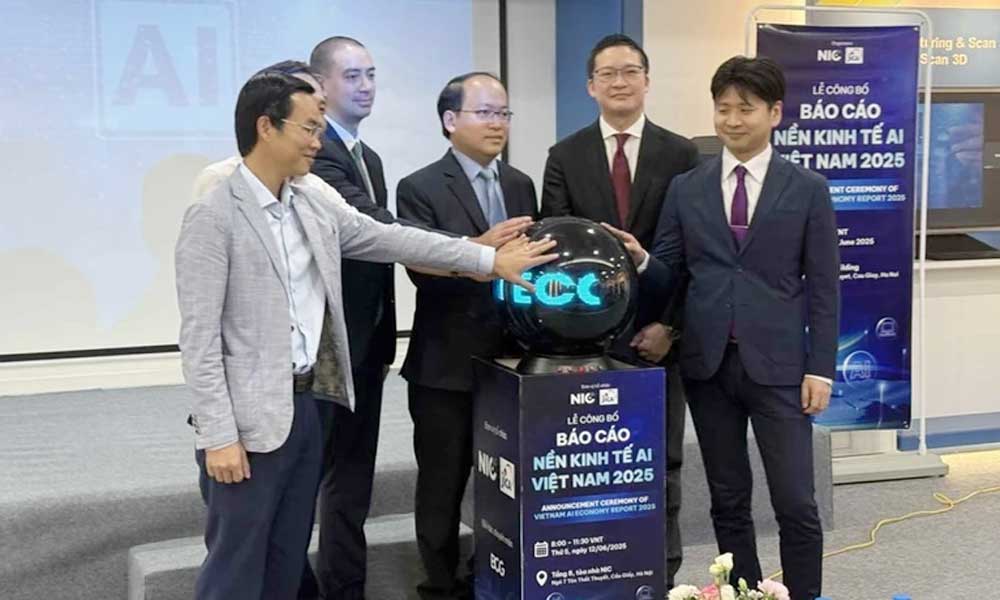AI to add 120–130 billion USD to Vietnam's economy by 2040: report
By 2040, AI will become a core factor of Vietnam's economic growth, according to a report released by the National Innovation Centre.
Artificial intelligence (AI) could add 120–130 billion USD to Vietnam’s economy by 2040, according to a report released by the National Innovation Centre (NIC) on June 12.
 |
|
Delegates at the launch of the Vietnam AI Economy Report. |
The report was compiled by the NIC under the Ministry of Finance in coordination with the Japan International Cooperation Agency (JICA) and the Boston Consulting Group (BCG).
It says that by 2040, AI will become a core factor of Vietnam's economic growth. The two main growth drivers that will help AI make a major contribution to the economy by 2040 are consumption revenue (45–55 billion USD) through the consumption of AI-powered products and services and the 60–70 billion USD in costs saved due to increased productivity thanks to technology application.
The report analyses in depth the current state of Vietnam's AI economy, and generalises into models and details for each field. It also points out the AI strategy and roadmap, areas of AI application, the startup ecosystem, human resources, and resources for the field. In particular, it provides important and practical strategic recommendations as well as a vision for Vietnam's AI ecosystem.
Vietnam is entering a particularly important transition period amid the Fourth Industrial Revolution taking place strongly with new breakthroughs in strategic technologies such as AI, semiconductor, biotechnology, renewable energy, and big data that are reshaping global value chains and changing the structures of economies.
AI is emerging as a central driving force of this revolution, with a forecast contribution of up to 5 trillion USD to the global economy by 2030 as estimated by the International Data Corporation (IDC).
Facing this historic opportunity, Vietnam is determined not only to participate, but also to gain a firm foothold in this key field, by proactively promoting cooperation with other countries, economies, and the world's tech giants.
Addressing the report launch in Hanoi, NIC Director Vu Quoc Huy said that the Party and State of Vietnam have issued many important policies and decisions such as the Politburo's Resolution No. 57-NQ/TW on making breakthroughs in science – technology development, innovation and national digital transformation, and Resolution 68-NQ/TW on private economic sector development, along with the National Assembly's Resolution No. 193/2025/QH15 on piloting a number of special mechanisms and policies to create breakthroughs in science – technology development, innovation, and national digital transformation.
He noted the report came as a result of cooperation between NIC, JICA, and BCG. It is the first document to provide a comprehensive panorama of the AI economy in Vietnam, providing some international experiences and lessons for AI development, analysing opportunities in key economic sectors, and proposing development pillars for the AI economy.
Kubo Yoshimoto, Deputy Chief Representative of JICA in Vietnam, said that the report outlines the way AI will contribute to Vietnam’s economy in the coming years.
It also highlights key areas where AI could have the greatest impact on and identifies strategic opportunities needed to develop an AI ecosystem in the country.
 Bắc giang
Bắc giang












Reader's comments (0)